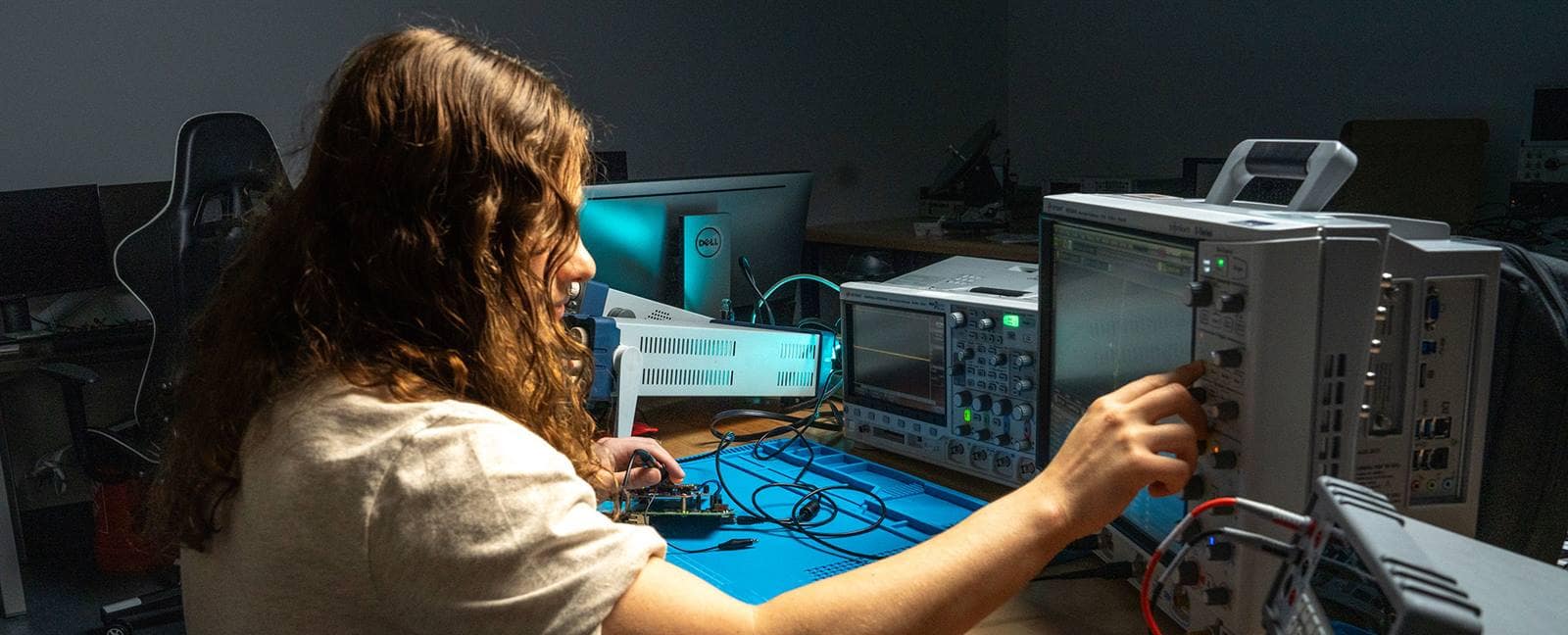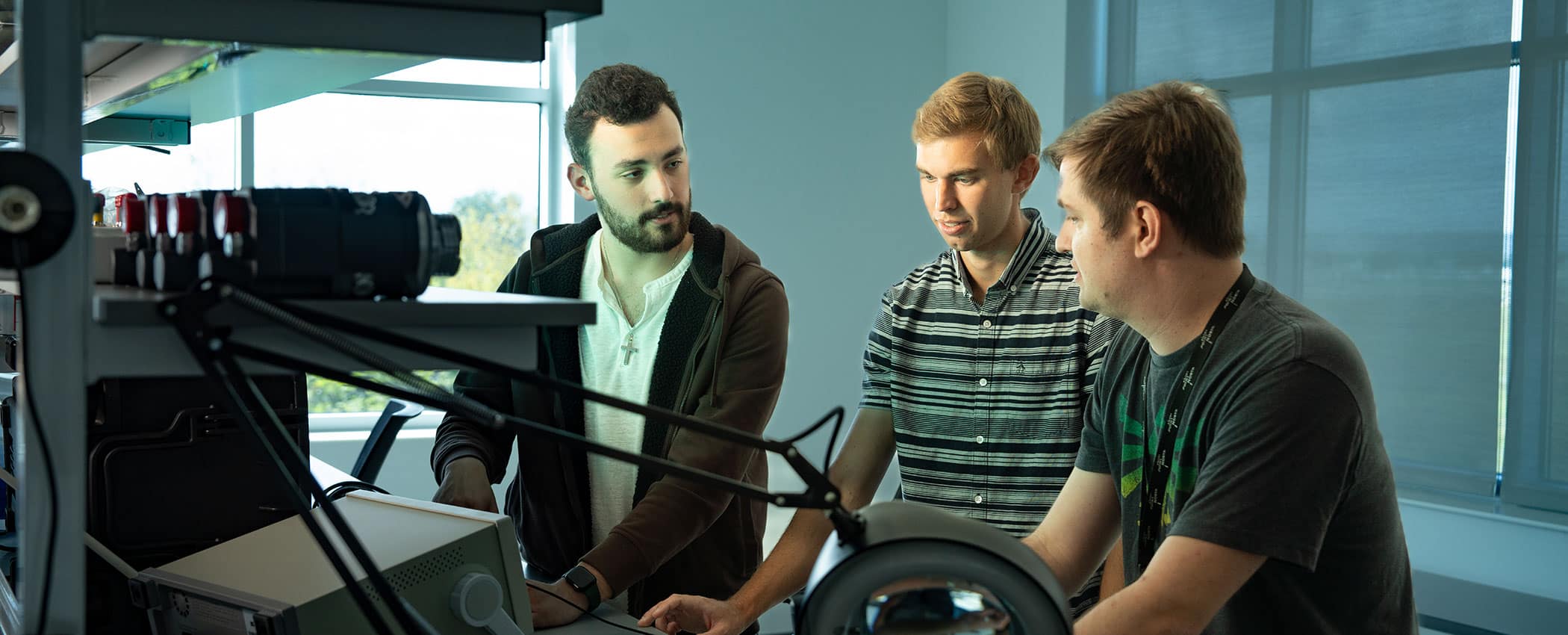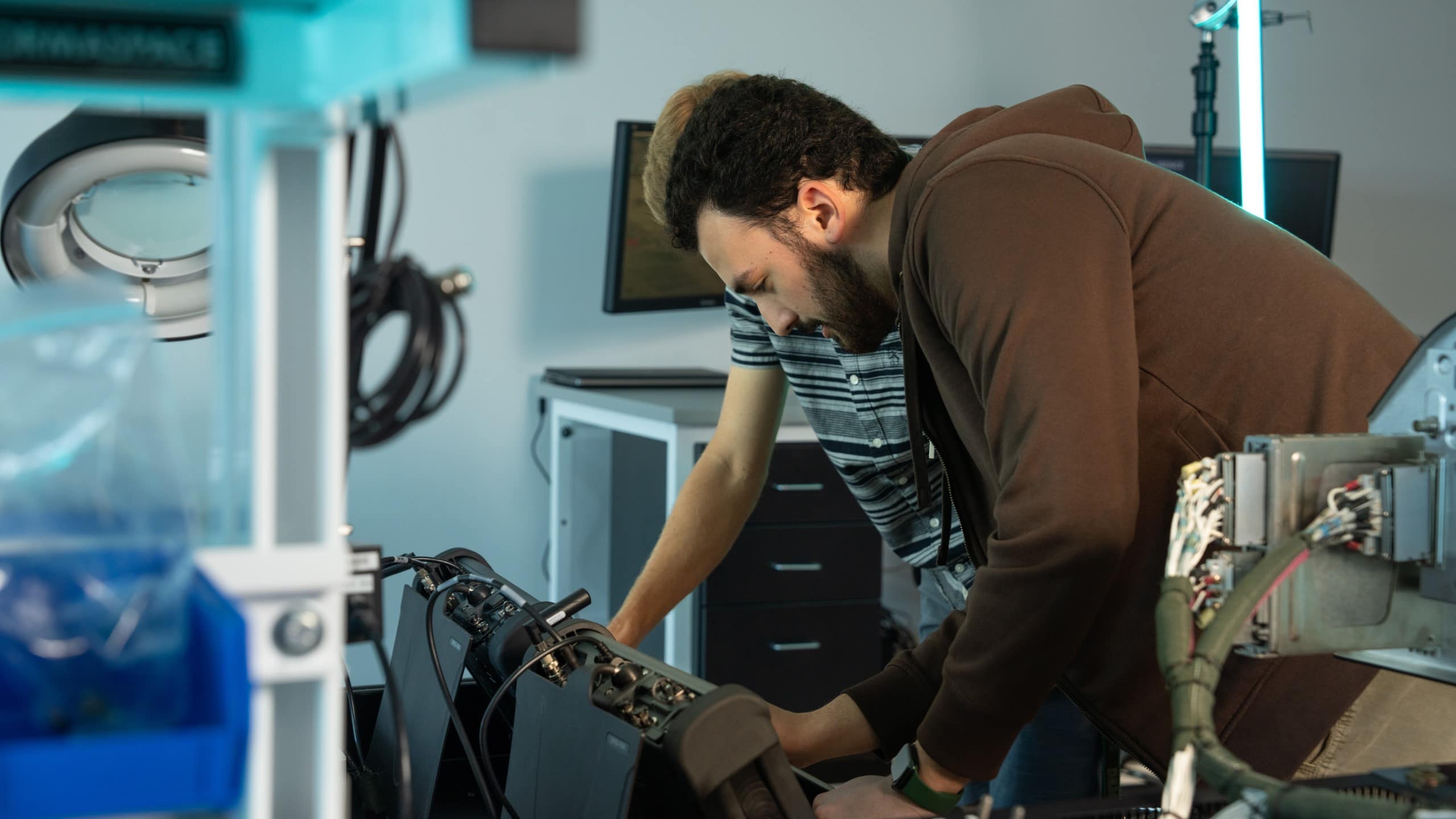
Master of Science in
Software Engineering
The Master of Science in Software Engineering covers all concepts in the software life cycle to help students advance careers in software and aerospace.
About the Master of Science in Software Engineering
The keystone of the Master of Science in Software Engineering program is working with software developers on some of the world’s most sophisticated and demanding applications, like those found in aircraft, spacecraft and medical devices. Faculty have active collaborative research projects with major corporations and government agencies, so Software Engineering graduate students can be assured their education will allow them to meet industry demands and trends.
To ensure that the program curriculum remains current and sensitive to industry trends, input is solicited directly from representatives in various industries. The curriculum incorporates the critical practices of Software Engineering to develop reliable software within the time and budget.
Student Learning Outcomes
What you will learn while pursuing a Software Engineering degree:
- Process: The ability to apply software engineering processes (e.g., SCRUM, PSP, TSP and CMM) to the development of highly reliable software-intensive systems.
- Technology: The ability to use software engineering methods, techniques and tools as they relate to the following areas of highly reliable software systems — analysis and specification of software requirements, software architecture and design, software construction, verification and validation.
- Communications: The ability to communicate effectively as an individual and to perform successfully as part of a team.
- Management: The ability to use software engineering methods, techniques and tools as they relate to the management of software-intensive systems development.
Software Engineering Career Opportunities
Careers and Employers
Software Engineering master's graduates often secure positions in information technology, video game design, cybersecurity engineering and software project management.
Software Engineering master's degree graduates enter the industry with companies such as:
- The Boeing Company
- Microsoft
- MasterCard
- Veritas
- General Dynamics
Software Engineering Salary Information
As of 2023, graduates with a degree in Software Engineering receive competitive salaries, with an average income of $115,000 annually.
DETAILS
About Software Engineering at the Daytona Beach, FL Campus
The M.S. in Software Engineering is designed to allow college graduates to enhance their careers and work on the cutting edge of modern software development. The process-centered quantitative approach to the course work in the degree program gives students the technical tools and techniques for software architecture and design.
The program emphasizes the engineering of real-time embedded software systems encountered in such applications as FAA air traffic control computer systems, aircraft avionics and aerospace software.
Software Engineering Information
- Credits: 30
- Mode of Study: In-Person
- Thesis: Thesis or Graduate Research Project
Helpful Links
- Tour Our Daytona Beach Campus
- Discover the Department's Faculty
- Explore the Fields of Study: Engineering and Computers & Technology
- Find Related Clubs & Organizations
Student Learning Outcomes
Students will:
- Apply software engineering processes to the development of highly reliable software-intensive systems.
- Evaluate the appropriate software engineering methods, techniques, and tools to develop highly reliable software systems throughout the software development life cycle.
- Communicate effectively as an individual and to perform successfully as part of a team.
- Evaluate software engineering methods, techniques, and tools as they relate to the management of software-intensive systems development.
Degree Requirements
Students must complete 18 credit hours of core courses.
| CS 532 | Software Security Assessment | 3 |
| SE 510 | Software Project Management | 3 |
| SE 525 | Software Quality Engineering and Assurance | 3 |
| SE 530 | Software Requirements Engineering | 3 |
| SE 610 | Software Systems Architecture and Design | 3 |
| SE 650 | Current Trends in Software Engineering | 3 |
| Total Credits | 18 | |
Non-Thesis Option
| SE 690 | Graduate Research Project | 3 |
| or SE 697 | Software Engineering Practicum | |
| Specified Software Engineering Electives | 9 | |
| Total Credits | 12 | |
Thesis Option
| SE 700 | Graduate Thesis | 6 |
| Specified Software Engineering Electives | 6 | |
Specified Software Engineering Electives
| Select from the following list of specified electives: | 6-9 | |
| DS 544 | Data Visualization | 3 |
| DS 615 | Data Modeling | 3 |
| DS 625 | Data Compression for Image and Signal Processing | 3 |
| SE 500 | Software Engineering Discipline | 3 |
| SE 520 | Formal Methods for Software Engineering | 3 |
| SE 555 | Object-Oriented Software Construction | 3 |
| SE 599 | Special Topics in Software Engineering | 3 |
| SE 696 | Graduate Internship in Software Engineering | 1-3 |
| SE 699 | Special Topics in Software Engineering | 3 |
| CS 527 | System Exploitation and Penetration Testing | 3 |
| CS 528 | Multi-Agent Systems | 3 |
| CS 529 | Computer Security | 3 |
| CS 538 | Applied Cryptography | 3 |
| CS 540 | Database and Information Retrieval | 3 |
| CS 602 | Big Data Analytics for Cybersecurity | 3 |
| SYS 505 | System Safety and Certification | 3 |
Note: Other electives may be authorized based on the student’s background, program of study, performance during the MSSE, and approval of the MSSE program coordinator.
Get Started Now:
Summary
30 Credits
Estimate your tuition by using the Tuition Calculator
View Financial Aid Information
Learn about our General Education
Find out about transferring credits to this degree
Learn more about our Veterans & Military benefits
View our Academic Calendar



